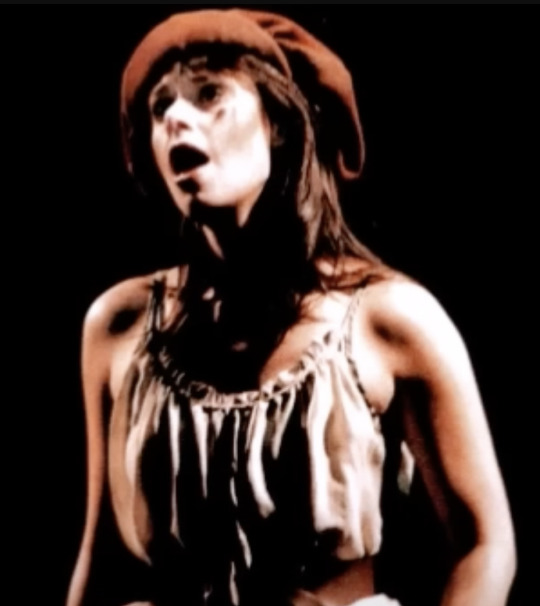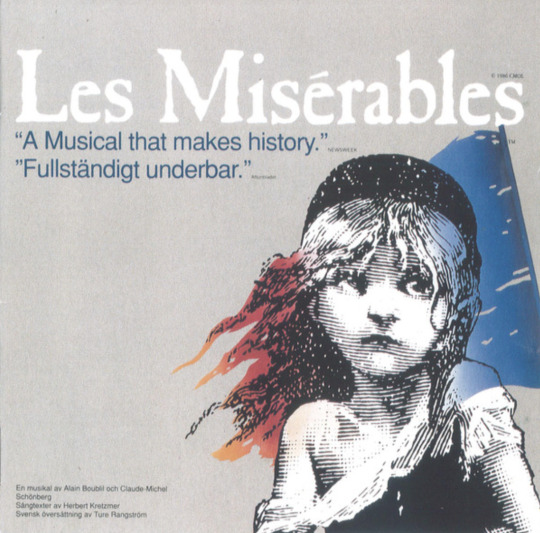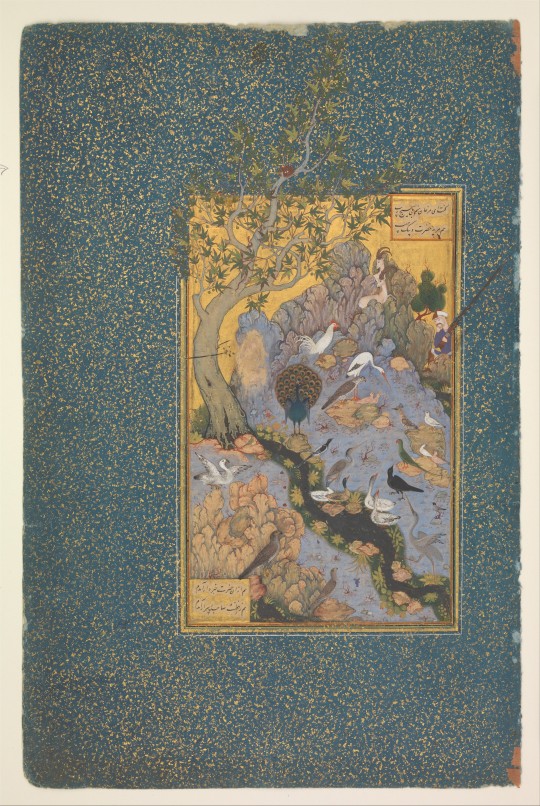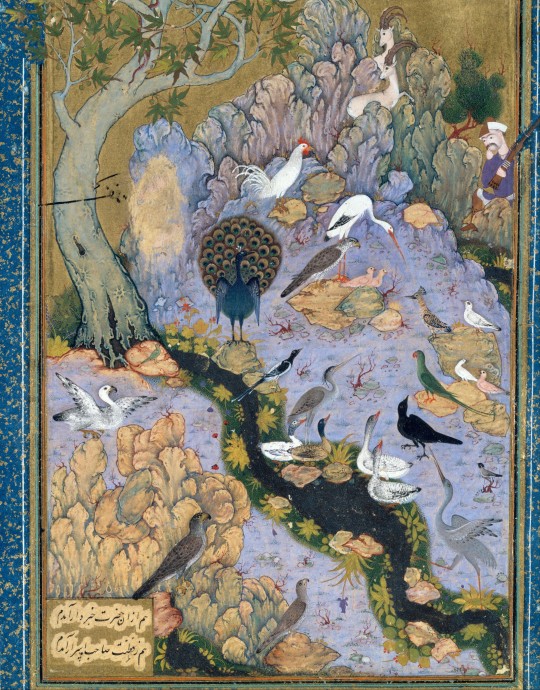#barry altschul
Explore tagged Tumblr posts
Text

7 notes
·
View notes
Text
Barry Altschul: A Journey Through the Rhythms of Avant-Garde Jazz
Introduction: Barry Altschul, a drummer whose name is synonymous with innovation and virtuosity, has left an indelible mark on jazz through his extensive career spanning over five decades. Known for his versatility, creativity, and profound contributions to the avant-garde jazz movement, Altschul’s story is one of relentless exploration and collaboration. From his early days in New York City to…
#Another Time/Another Place#Anthony Braxton#Barry Altschul#Charli Persip#Chick Corea#Circle#Circling In#Creative Orchestra Music 1976#Dave Holland#Five Pieces 1975#Jazz Drummers#Jazz History#Kenny Wheeler#Paris-Concert#Paul Bley#Sam Rivers#Tales of the Unforeseen#The 3Dom Factor#The Complete Braxton#You Can&039;t Name Your Own Tune
4 notes
·
View notes
Text
youtube
barry altschul / paul bley / gary peacock -- virtuosi [album, 1976]
4 notes
·
View notes
Text
youtube
0 notes
Text
Standout moments from "Les Mis" recordings: 1988-1990
My Les Mis watch- and listen-through in honor of the musical's 40th anniversary continues. Now I've reached the end of the '80s and the beginning of the '90s.
Drawing inspiration from @professorspork's Wicked Punctum Project, I'm choosing specific moments from recordings (video or audio, official or bootleg) that stand out the most in my mind, and writing down my thoughts about them.
Complete Symphonic Recording
Gary Morris (Jean Valjean), Philip Quast (Javert), Debbie Byrne (Fantine), Barry James (Thénardier), Gay Soper (Mme. Thénardier), Kaho Shimada (Éponine), Michael Ball (Marius), Anthony Warlow (Enjolras), Tracy Shayne (Cosette)

Anthony Warlow and Michael Ball’s “One more day before the storm…”/“Do I follow where she goes?” in “One Day More."
The CSR was my first Les Mis recording and it’s still the “default” version I tend to hear in my head when I think of the songs. It was almost impossible for me to choose a single standout moment from this recording. But after much internal debate, I finally chose Marius and Enjolras’s counterpoint in “One Day More.” Anthony Warlow’s Enjolras sings his call to arms with such burnished, dignified, stentorian fervor – the spirit of revolution embodied in powerful sound. And in counterpoint is Michael Ball’s Marius, with his equally rich and powerful yet “syrupy” (in a good way) and oh-so-emotional voice, singing of his conflict between love and duty. Their contrasting voices capture the two characters’ contrasting personalities in a beautiful and thrilling way. The moment is only made more exciting by chorus entering behind Warlow’s voice with “The time is now! The day is here” at the end of the passage, and by the symphonic orchestrations.
Honorable Mentions:
*Philip Quast’s militaristic, staccato “You have no rights! Come with me, 24601!” in “Confrontation.” No other Javert has ever sung that line so perfectly, not even Quast himself in the 10th Anniversary Concert.
*Ross McCall’s little cries, gasps, and struggling, pained voice as the mortally wounded Gavroche.
*Barry James’ wild, psychotic laughter as Thénardier as the end of “Dog Eats Dog.”
Original Vienna Cast Recording
Reinhard Brussman (Jean Valjean), Norbert Lamla (Javert), Sona MacDonald (Fantine), Franz Caencsits (Thénardier), Susanne Altschul (Mme. Thénardier), Jane Comerford (Éponine), Felix Martin (Marius), Alexander Diepold (Enjolras), Martina Dorak (Cosette)

Sona MacDonald’s sweet, gentle “Come to Me.”
If I weren’t specifying moments, I’d say that Sona MacDonald’s Fantine in general is the highlight of this recording. At age 27, she was younger than most other early Fantines, with a lighter, sweeter voice than was usually heard in the role at the time. This makes her capture the tragic youthfulness and vulnerability of Hugo’s Fantine, which more mature-voiced “leading lady” actresses can’t quite do. Of the specific moments in her performance, I finally settled on her death as the standout. Her voice is so gentle and tender, and of the Fantines I’ve heard so far, she’s the first Fantine from a replica production to sing the final note gently rather than belting it. (Riki Gal in the Israeli cast and Kútvölgyi Erzsébet in Hungary sang it gently too, but those were both non-replica productions.) In the musical’s early years, Fantine’s last moments seem to have typically been played as somewhat tortured – which admittedly is true to her death in the novel – but this version creates a sense of beautiful and well-deserved peace.
1989 Australia Day Concert
Normie Rowe (Jean Valjean), John Diedrich (Javert), Debbie Byrne (Fantine), William Zappa (Thénardier), Robyn Arthur (Mme. Thénardier), Laurą Hamilton (Éponine), Peter Cousens (Marius), Anthony Warlow (Enjolras), Marina Prior (Cosette)

Anthony Warlow's Enjolras in "The Final Battle."
I’m sure that Warlow’s Enjolras is one of the main draws to this filmed concert. We all know and love him from the Complete Symphonic Recording and here we get to see him! His whole performance is outstanding: so impassioned yet stately and dignified, a true “marble lover of liberty,” and of course his voice is magnificent. But I’d say that his standout moment is “The Final Battle,” where even in concert format, we can tell that this is where Enjolras snaps. Up to this point, his passion has been a contained fire, fierce yet not wild. But after seeing Gavroche die and knowing death is imminent for himself and all his friends too, the breaks come off, and he ferociously roars “LET US DIE FACING OUR FOES!!! MAKE THEM BLEED WHILE WE CAN!!” and “…until the earth IS FREEEEE!!!” This change at the end is much more effective than if he had spent the whole barricade sequence yelling and being unhinged (e.g. like David Burt in the OLC bootlegs).
Honorable mentions (good):
*Marina Prior’s facial expressions as Cosette, especially in “A Heart Full of Love” and as she fibs to Valjean in “Attack on Rue Plumet.” She’s just so adorable and seems so young and sweetly awkward. Even though she was 27, she’s the first Cosette so far whom I can fully believe is a teenage girl.
*The raw, anguished passion of Normie Rowe's "If I die, let me die!" in "Bring Him Home." I don't think I've ever heard another Valjean put as much into that line.
Honorable mentions (questionable):
*John Diedrich’s ghoulish face makeup as Javert.
*The fact that there are no costume changes for the ensemble, and the men all wear their student costumes, even in their earlier roles like the Bishop, the Foreman, or Bamatabois. As a result, it looks as if the Amis de l’ABC labor in a chain gang, buy Valjean’s soul for God, persecute Fantine, carouse at Thénardier's inn, etc.
*The fireworks in the sky that represent the gunfire at the end “The Final Battle” – that’s right, a brutal mass slaughter is represented by a display of fireworks, which inspire the audience to break into applause, as if they were applauding the revolutionaries’ deaths.
1989 London audio bootleg
Peter Karrie (Jean Valjean), Philip Quast (Javert), Grania Renihan (Fantine), Julian Forsythe (u/s Thénardier), Gay Soper (Mme. Thénardier), Jacinta Whyte (u/s Éponine), Mario Frangoulis (Marius), Michael Cantwell (Enjolras), Janet Mooney (u/s Cosette)

Jacinta Whyte’s fierce, growly “JUUUST the old man and THE GIRL!!” in “Attack on Rue Plumet.”
With this bootleg, we hear the role of Éponine shifting decisively away from the original Frances Ruffelle model. Jacinta Whyte’s voice is clear, warm, and slightly brassy yet beautiful, without a trace of the “kittenish waif” sound that has defined most Éponine voices so far. And she doesn’t sound as if she’s playing the character as a kittenish waif either. While of course the previous Éponines have also been fierce and defiant in “Attack on Rue Plumet,” this performance takes that scene to a new level. As she belts out her defiance with a snarl in her voice (and follows it with an impressive scream too), it's clear that this Éponine is no broken bird, but a true fighter who can take care of herself on the streets. In the past I’ve head some fans credit Lea Salonga with being the first actress to make Éponine strong and feisty rather than waif-like, but they obviously never heard this one!
Honorable Mentions:
*Michael Cantwell’s annoyed, half-growled “Marius, you’re late!” as Enjolras in “The ABC Café.”
*A very young Mario Frangoulis as Marius just can’t get the lyrics to “A Heart Full of Love” quite right! First, he sings “A heart full of you” when it should have been “…of song,” which probably adds to the intense embarrassment with which he sings the next line, “I’m doing everything all wrong!” Then, much worse, he sings “Your name is Marius Pontmercy” instead of “My name…” :)
Original Stockholm Cast Recording
Tommy Körberg (Jean Valjean), Jan Åström (Javert), Karin Glenmark (Fantine), Claes Malmberg (Thénardier), Beatrice Järås (Mme. Thénardier), Maria Rydberg (Éponine), Richard Carlsohn (Marius), Joakim Jennefors (Enjolras), Gunilla Backman (Cosette)

Karin Glenmark’s urgency and Tommy Körberg’s gentleness in “Come to Me.”
This is just a 21-track highlights recording, but I still managed to find a small standout moment. In “Come to Me,” Karin Glenmark’s Fantine belts “Look M’sieur, where all the children play!” (or rather its Swedish equivalent) in such a delirious, desperate tone, but then Tommy Körberg’s Valjean soothes her by singing “Be at peace, be at peace evermore” (or rather its Swedish equivalent) with utter softness and gentleness. Their contrasting delivery of these two lines perfectly capture the torments of Fantine and Valjean’s compassionate efforts to comfort and help her. Incidentally, I’ve just learned that Tommy Körberg voiced the Beast in the Swedish dub of Disney’s Beauty and the Beast. While this album doesn’t convey much of his capacity for the Beast’s initial rage and ferocity– it unfortunately cuts “Valjean’s Soliloquy” and “Confrontation” – it most definitely conveys how lovely he must have been as the gentle, selflessly loving Beast in the later part of the movie.
#les mis#les miserables#standout moments#recordings#bootlegs#audio recordings#video recordings#1988#1989#1990#vienna#sydney#london#stockholm
15 notes
·
View notes
Text
youtube
‘Virtuosi’, 1976 Paul Bley, Gary Peacock, Barry Altschul
6 notes
·
View notes
Audio
Listen/purchase: STOP TIME by Barry Altschul / David Izenson / Perry Robinson
2 notes
·
View notes
Text
QUARTETS AT SMALLS
JOE FARNSWORTH with Sarah Hanahan, Emmet Cohen, and Yakasushi Nakumara, 20 JANUARY 2025, 9 pm
RICKY FORD with Mark Soskin, Todd Marino, and Barry Altschul, 21 JANUARY 2025, 9 pm
The presence of Emmet Cohen moved JOE FARNSWORTH’s regular gig often with Sarah Hanahan from probable to sure. RICKY FORD was a name from the late ‘70s whom I’d lost track of but who had Barry Altschul behind the kit. So, I had powerful horns and drummers to explore with, in the back of my mind, that I will look at the new/old Joe Henderson/McCoy Tyner album from Slug’s in 1966 as if it were one of these gigs that I would check out because the players were interesting.
These two were fascinating but not, I think, completely successful due to the material. JOE FARNSWORTH set the puzzle of trying out some new material on the bandstand as part of his suit and tie adventurousness while RICKY FORD, it seems, had played most of the new compositions he wanted to showcase in the first set. But the drumming, FARNSWORTH and Altschul, was fascinating but not as overwhelming as they have each been.
The playing in the FARNSWORTH set was both tentative and restrained as they simply didn’t stretch out. The Joel Ross tune never jelled but each member of the band had a tune that at least had the composer leading. Hanahan’s was both shorter and melodic as she and they didn’t take it as far out as she often goes. Yakashusi Nakamura was steady as always and his tune was slinky; Hanahan soared on it but kept the structure of the tune as a reference point throughout. Cohen’s tune, done in trio had the feel of a standard. Then Ada Brandis Hargrove came out to sing My Romance and the bossa Quiet Nights. Me and singers, so I felt the constraint as her voice was thin and her delivery as tentative as everything else that night. They did close out with The Theme which explore the rhythm changes for several choruses before resolving to the closing phrase.
RICKY FORD too kept the structure of the tunes in place despite playing with the growls and overtones I remember from my first experience with him 45ish years ago. He’s primarily been in Europe but also Türkiye. The first tune of this set’s title was translated from Turkish as Welcome. I didn’t hear particular Middle Eastern/Eastern Europe elements but perhaps I was merely getting my bearings. As with most of the tunes, the outro conversation between FORD and Altschul was a highlight. The drummer was active, inventive, and always listening. He was worth attending to, but unlike at a Mezzrow’s trio gig or two, he fit the larger room and the band. Mark Soskin had some interesting voicings, particularly on the Monk, Ask Me Now, audible Ford called, but he played quieter than the rest which brought the energy down. Todd Marino’s bass was solid enough when I could hear. The other ballad was probably Lonnie’s Lament and I did hear some Coltrane as one does with most tenor players but never fully the tune. As with the Farnsworth set, they said their piece in about ten minutes, though such players could and have gone on for several choruses more each. And this time they only did five tunes, finishing up well before the usual hour.
I was not fully satisfied with these sets, but, that said, neither do I regret turning my attention to them.
0 notes
Text
Barry Altschul, Paul Bley, Gary Peacock - Virtuosi (LP, Album, Promo)
Vinyl(VG+) Sleeve(VG) Insert(VG+) Obi(missing) // missing Obi 帯なし / nice vinyl, plays nice / minor shelf wear / コンディション 盤 : Very Good Plus (VG+) コンディション ジャケット : Very Good (VG) コンディションの表記について [ M > M- > VG+ > VG > G+ > G > F > P ] レーベル : Improvising Artists Inc. – RJ-7138 フォーマット : Vinyl, LP, Album, Promo 生産国 : Japan 発売年 : 1976 Recorded New York City / Nola Studios / June 28, 1967. Includes…
0 notes
Photo
Dave Holland – acoustic bass
Sam Rivers – reeds, flute
Anthony Braxton – reeds, flute
Barry Altschul – percussion, marimba


Title: "The Concourse of the Birds", Folio 11r from a Mantiq al-tair (Language of the Birds)
Artist: Painting by Habiballah of Sava (Iranian, active ca. 1590–1610)
Author: Farid al-Din `Attar (Iranian, Nishapur ca. 1142–ca. 1220 Nishapur)
Date: ca. 1600
Geography: Attributed to Iran, Isfahan
https://www.metmuseum.org/art/collection/search/451725
http://en.wikipedia.org/wiki/The_Conference_of_the_Birds
487 notes
·
View notes
Video
youtube
Anthony Braxton Quartet - Montreux 1975
Anthony Braxton - reeds Kenny Wheeler - trumpet Dave Holland - bass Barry Altschul - drums
#1970s#Anthony Braxton#Kenny Wheeler#Dave Holland#Barry Altschul#Jazz#free jazz#Montreux#Switzerland#1975#50 years in 2025
15 notes
·
View notes
Text

#dave holland quartet#conference of the birds#ecm#four winds#dave holland#barry altschul#anthony braxton#sam rivers
12 notes
·
View notes
Text
Conference of the Birds: Dave Holland's Avian Jazz Masterpiece
Introduction: In the ever-evolving landscape of jazz, certain albums emerge as transformative milestones, redefining the boundaries of the genre and leaving an indelible mark on its trajectory. “Conference of the Birds,” an album by bassist and composer Dave Holland, stands as a testament to the boundless creativity and collaborative spirit of jazz musicians. Released in 1973, this album is not…

View On WordPress
#Anthony Braxton#Barry Altschul#Classic Albums#Conference of the Birds#Dave Holland#Jazz History#Sam Rivers
6 notes
·
View notes
Text

Paul Bley - Great American Music Hall, San Francisco, California, August 20, 1976 / December 16, 1976
Sometimes you just have to listen to Paul Bley all damn day. These two 1976 performances in San Francisco will help you reach this elevated plane. The August date features the pianist in a trio setting, with bassist Gary Peacock and drummer Barry Altschul providing sensitive, searching (and occasionally searing) accompaniment. The December date is nothing but Bley — two-plus hours of Mr. Joy bringing some wonderful solo explorations to O'Farrell Street.
Paul says: So much of the music is improvised that the line between improvisation and composition pretty much disappear, so that the goal in improvising is to sound like it is composed. From the audience's point of view, they are not really supposed to know whether it's written or improvised, so what you're really talking about is spontaneous composition, which is often called improvisation. The audience responds not so much to composition or improvisation, they respond to the individual players and what they respond to with the player is pretty much the timbre and tone of the player and the passion of a player. That's what engages an audience.
21 notes
·
View notes
Text




David HOLLAND Quartet
"Conference of the Birds"
(LP. ECM rcds. 1973 / rec. 1972) [GB/US]
#david holland#dave holland#uk#usa#1973#jazz#free jazz#post bop#barry altschul#anthony braxton#sam rivers#records#Bandcamp
9 notes
·
View notes
Text
Paul Bley Trios – Touching & Blood Revisited (Ezz-thetics)

youtube
Canadian pianist Paul Bley was an inarguable artistic giant further blessed with the advantage of longevity. His vast and varied professional career stretched from the nascent jazz modernism of the 1950s to an eventual retirement six-years prior to his passing at the age of 83 in 2016. Across that temporal distance he played virtually every style within the idiom and in the cumulative process created a signature approach to improvisation bridging freedom and structure entirely his own. Touching & Blood Revisited surveys a particularly fertile pair of points on that continuum, and finds Bley firmly embracing the singular vernacular that would shape his investigations in the coming decades.
Bill Evans is a common, if mostly imperfect and reductionist, corollary to Bley. Both dealt in introspective and impressionistic expression often rooted in figurative pastoralism. But where Evans often painted pianistic portraits in vibrant pastels, Bley frequently smudged, shaded and elided his shapes in charcoals. That preference for grain and texture is all over the excursions that make up the disc’s composite program. Drummer Barry Altschul is a common denominator of both dates, which are separated by almost exactly a year. Bassist Kent Carter serves as fulcrum on the first from November 1965 in a program that combines Bley originals with a handful of other compositions from his erstwhile spouses Annette Peacock and Carla Bley.
The trio approaches the tunes faithfully, but with ears also collectively cocked to opportunities for loose-limbed extemporization. “Cartoon” echoes its namesake, expanding and contracting on the complimentary surfaces set up by stuttering chords, snapping strings and swishing brushes. “Touching” is delicacy coupled with curled melancholy, Altschul’s spare cymbals framing Bley’s staggered statement of theme. Peacock’s “Mazatlan” pivots on a jaunty Latin syncopation and a tightly wound progression parsed by Bley’s overlapping hands. There’s a similar relationship between density and openness on the closing “Pablo” as Carter and Altschul agitate a series of cross-rhythms under the leader’s questing chords.
“Blood” switches locales from Copenhagen to The Netherlands with Mark Levinson installed on bass in place of Carter. Sprawling the entirety of an LP side, the largely improvised performance builds from a commodious compositional lattice by Peacock. Long-form improvisational excursions rooted in rhythm and melody were still something of an exception when it was recorded and the players’ collective concentration over the course is remarkable, especially considering its vintage. Altschul, in particular, is fire, ranging all over his kit and forging an energy source that neither falters nor overwhelms. Levinson knows when to lay out and Bley balances his leader role with an unwavering respect for his colleagues. It’s a platinum standard fidelity toward teamwork that he would largely sustain over the next half-century.
Derek Taylor
#paul bley#touching & blood revisited#ezz-thetics#jazz#piano#barry altschul#kent carter#dusted magazine#albumreview#derek taylor
5 notes
·
View notes